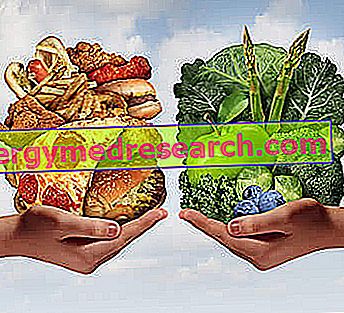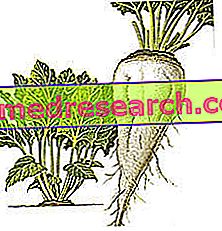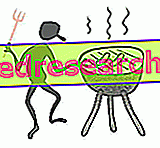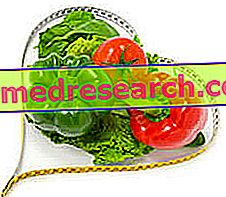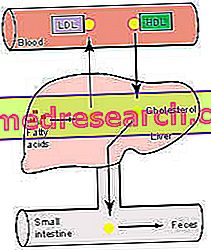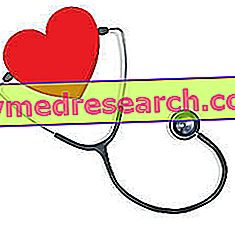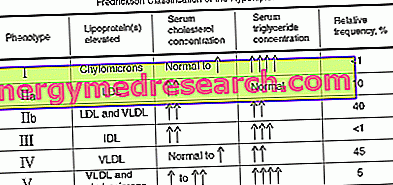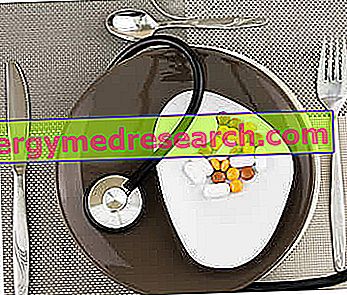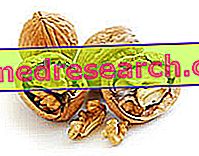Generality HDL means "High-Density Lipoprotein", meaning "high density lipoprotein". Technically, HDLs do not consist of "pure cholesterol" and also contain specific proteins that serve to transport fats in the blood. There are various types of lipoproteins. HDLs are beneficial and are therefore called " good cholesterol "; others are considered potentially harmful and are therefore called "bad cholesterol"
Category cholesterol
Generality Betaine is a natural substance extracted from sugar beet ( Beta vulgaris ), to which it owes its name. Also known as trimethylglycine , Betaine is a known methylating agent; this means that it has the ability to yield methyl groups (CH 3 ) to various substances. Due to this activity, Betaine has been successfully used in the treatment of homocystinuria and hyperhomocysteinemia, conditions associated with an increased cardiovascular risk
See also: familial hypercholesterolemia What is cholesterolemia? Cholesterol is the amount of cholesterol present in the blood. It is measured on a small blood sample taken fasting for at least 10-12 hours and is expressed in milligrams of cholesterol per deciliter of blood (mg / dl). Depends on what
Articles and in-depth articles on the subject - CHOLESTEROL AND TRIGLYCERIDES - General information on cholesterol Diet and Cholesterol LDL HDL: how many names does cholesterol have? Cholesterol in foods Good cholesterol and bad cholesterol Fish and cholesterol Cholesterol values, when to worry? Eggs and cholesterol Total cholesterol Cholesterol and nutrition Low cholesterol Hypercholesterolemia Cholesterol and triglyceride values (expressed in mg on dL of plasma) which should be observed for prevention of cardiovascular diseases in the healthy population (*) Parameter Desirable values Values
What does it mean? Low cholesterol, termed hypocholesterolemia in medical terms, is a metabolic disorder characterized by low concentrations of cholesterol in the blood. While the opposite problem, defined as hypercholesterolemia, is quite common in the inhabitants of industrialized countries due to the well-known food excesses, particularly low cholesterol levels are recorded above all in the regions suffering from malnutrition
The body produces cholesterol The term Endogenous Cholesterol refers to the amount of cholesterol produced by the body; under normal conditions, the body of an adult person synthesizes about 600-1000 mg of cholesterol a day. The Liver in a prevalent measure, but also intestines, adrenals and skin, are in this sense the most active organs
Menopause and Cardiovascular Risk Menopause brings with it some disadvantages on the lipidemic profile of women. The consequent decrease in estrogen levels tends to reduce cardiovascular protection, typical of the fertile period, which makes it less susceptible to cardiovascular diseases such as atherosclerosis, angina, myocardial infarction and peripheral atheropathies
Definition and Lipoproteins The term dyslipidemia identifies any significant abnormality of the lipids present in the blood. In the circulatory stream, lipids do not circulate alone, but are associated with particular transport proteins, with which they form the so-called lipoproteins. In particular, free fatty acids, derived from the hydrolysis of triglycerides in adipose tissue, circulate in the blood mainly linked to albumin, while cholesterol and other fats (in particular phospholipids and triglycerides) are contained within five types of lipoprotein molecules
When to use them High cholesterol drugs are necessary when the correction of modifiable risk factors - in particular diet and exercise - fails the goal of bringing the lipidic structure back to acceptable values. First of all, it should be clarified that cholesterol-lowering drugs must not replace, but be associated with, the correction of lifestyle; in this way it is in fact possible to exploit the synergistic action of the two therapeutic interventions
When a balanced diet, associated with a regular program of physical activity, is not enough to restore the values of cholesterol and triglycerides in the blood, it is necessary to intervene with specific drugs. These include statins, ezetimibe and, indeed, fibrates (clofibrate, bezafibrate, gemfibrozil, fenofibrate). Ac
Phytosterols in the Diet Phytosterols are natural components of the human diet; they are found in excellent quantities in vegetable oils, nuts and cereals. In western countries the dietary intake of phytosterols is similar to that of cholesterol (150-400 mg / day) and increases by about 50% in vegetarians

